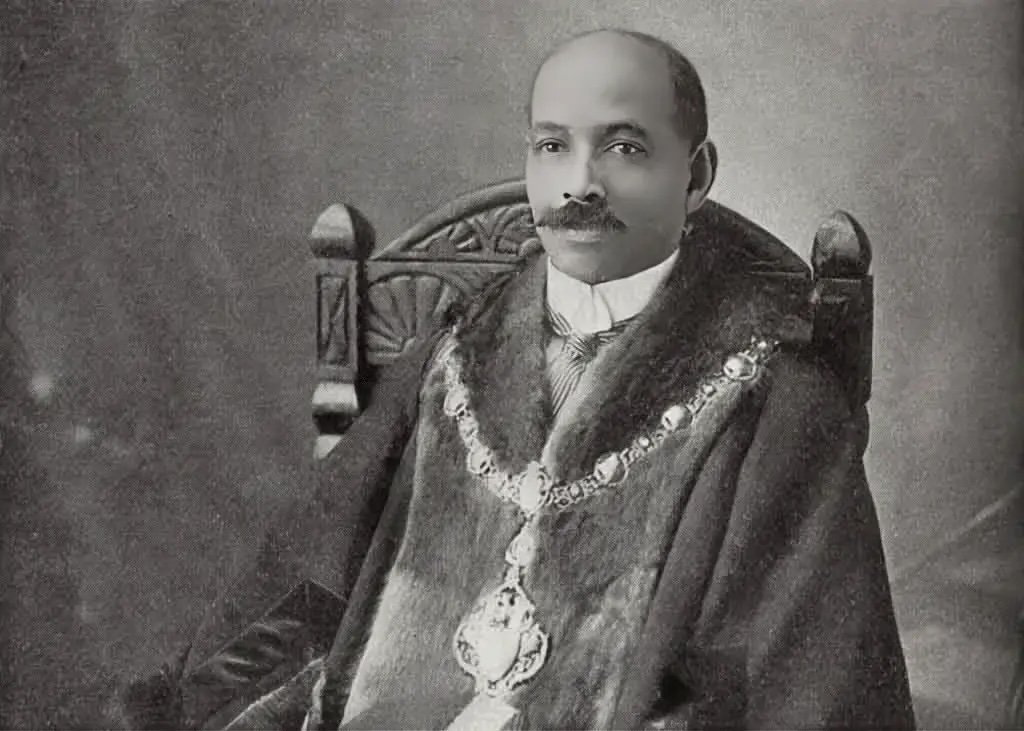19th - 21st Century Black Historical Hidden Figures
By the 19th and 20th century, there was an emergence of prominent Black figures across the spectrum of society. Despite their prominence and impact, they have been obscured from history rather than celebrated as an example of achievement and diversity. In this piece, we spotlight great achievers between the 19th and 21st century that have and are paving the way for more greatness.
1. Samuel Coleridge Taylor (1875-1912)
Meet Samuel Coleride Taylor, English composer and conductor. Born in Holborn in 1875 to an English mother and a Sierra Leone-born father. Samuel Coleridge Taylor was young, gifted and Black. Raised in a family of classical musicians, his father taught him to play the violin at a young age.
Samuel Coleridge Taylor
Taylor’s affinity towards music was instant, and his talent would soon attract the likes of respected critics. At just 15 years old, he joined the Royal College of Music to study and perfected his craft. Thereafter, the young composer made his musical debut with ‘Ballade in A Minor.’ Taylor soon became so popular that his music led him to embark on three tours of the United States, whereby he was later referred to by white New York musicians as ‘Black Mahler’. But beyond his American success, Samuel Coleridge-Taylor was an activist.
Conscious of his African descent, he often championed political activism, using his compositions such as the famed, The Song of Hiawatha to combat racial prejudice. Taylor’s classical compositions were heavily influenced by traditional African music, and this set him apart as one of the most progressive composers of his time.
2. John Archer (1863-1932)
Meet John Archer, MP and First Black Mayor of Battersea. John Richard Archer was born on 8th June 1863 in Liverpool. Concerned about the social conditions plaguing local communities and national affairs, Archer seems to have begun establishing himself in left-wing circles after 1900.
John Archer
Aligning himself with the likes of his contemporary, Samuel Coleridge-Taylor, Archer emerged as part of a handful of Black activists, concerned with human and civil rights within the British Empire. Archer most notably attended the first Pan-African Conference in July 1900, held at Westminster Town Hall before standing as a Progressive candidate for the Latchmere ward.
In November 1906, John Archer was elected to Battersea Borough Council as one of six councillors for the Latchmere ward. In 1913, he was elected Mayor of Battersea, making him the first person of African descent to hold a civic office in London. Though, John Archer was not the first Black mayor in Britain (that honour went Allen Glaser Minns, a Bahamian doctor elected in Norfolk in 1904), but Archer was, however, the first to be elected in London, and the first Black person to become an election agent for a constituency Labour Party.
3. Dr Agnes Yewande Savage (1906-1964)
Meet Agnes Yewande Savage, the first West African woman to qualify in medicine in Britain. Born at 15 Buccleuch Place, in 1906, to a Nigerian father and Scottish mother, Agnes was a bright young pupil with an ever-brighter future ahead of her. Her school record alone is comprised with her accolades and achievements in a whole range of subjects including Science, Maths and Music. But her early years were not without their challenges.
Dr Agnes Yewande Savage
Agnes faced institutional barriers due to her being Black and a Woman. But her mettle and grit proved to be her strength and mainstay, as she was not deterred from pursuing her ambition as a doctor. In 1924, after completing her time at Watson’s college, Agnes enrolled at Edinburgh University - studying Medicine - in her father’s footsteps.
After four years at Edinburgh, she obtained first class honours, won a medal in Forensic Medicine (becoming the first woman to do so), a prize in ‘Diseases of the Skin’ and the prestigious Dorothy Gilfillan Memorial Prize for the best woman graduate in 1929. By 1930, Agnes had joined her father in Ghana, serving as a medical doctor.
4. Olivette Otele (1970-present)
Meet Olivette Otele, the first Black woman in the UK to become a history professor. Born in Cameroon in 1970, before moving to Paris in her early childhood, Olivette’s own experiences as an African European have since been the focal point of her career as a historian.
Olivette Otele
In her early years, Otele studied at the Sorbonne University, where she studied European colonial and post-colonial history. Thereafter, she completed her Bachelor of Arts degree in literature before completing her doctoral studies, on Bristol's role in the trans-Atlantic slave trade.
Today, Olivette Otele is a Distinguished Research Professor of the Legacies and Memory of Slavery within the Faculty of Law at SOAS. She is also Vice President of the Royal Historical Society and Chair of Bristol's Race Equality Commission.
Otele’s work is crucially important, especially given that less than 1% of professors in the UK are Black. As an expert on the histories, memoires and geopolitics of colonialism in relation to French and British colonial pasts, Otele has spearheaded new interpretations of enslavement and the legacies of European colonisation, still in effect today. Her recent book is a monograph titled, African European: an untold History.





